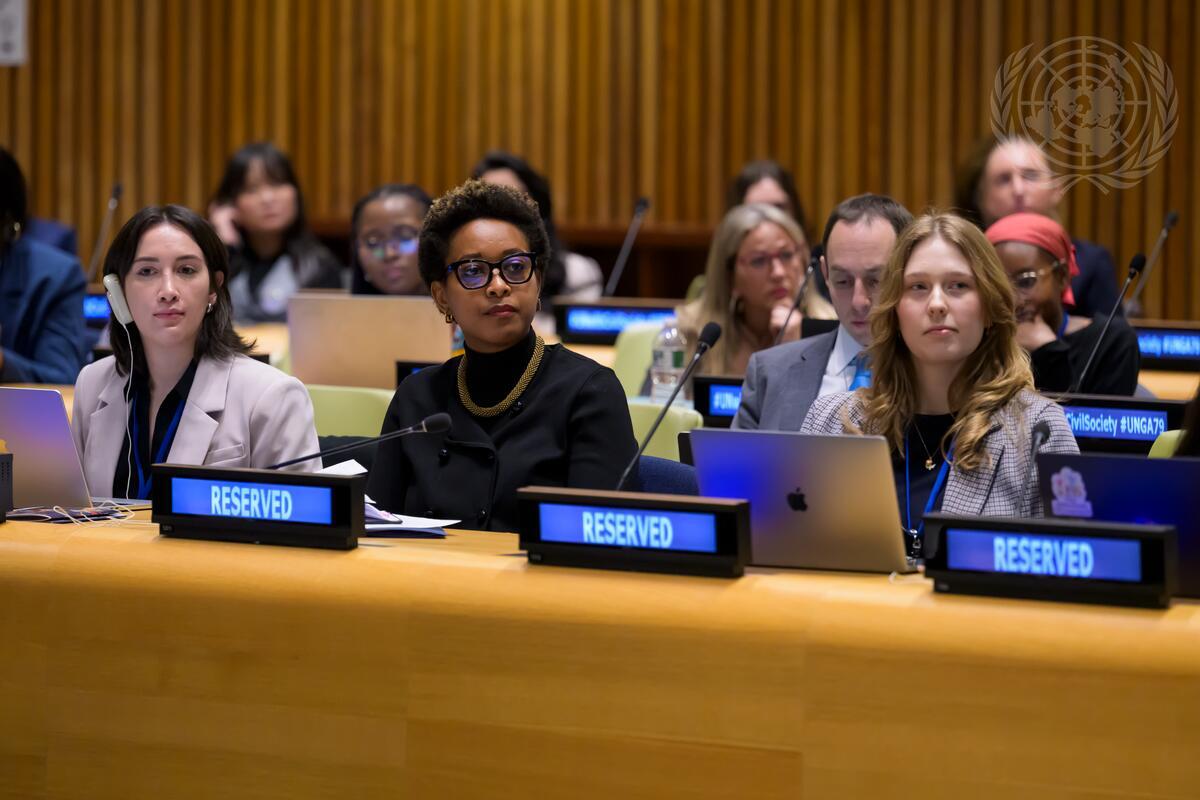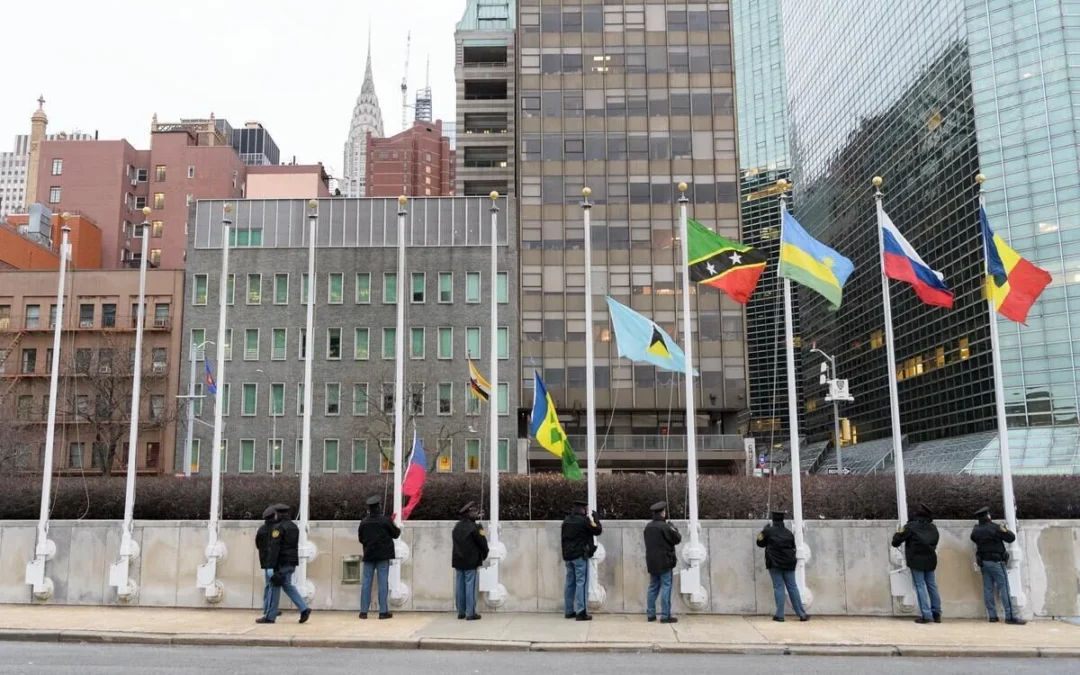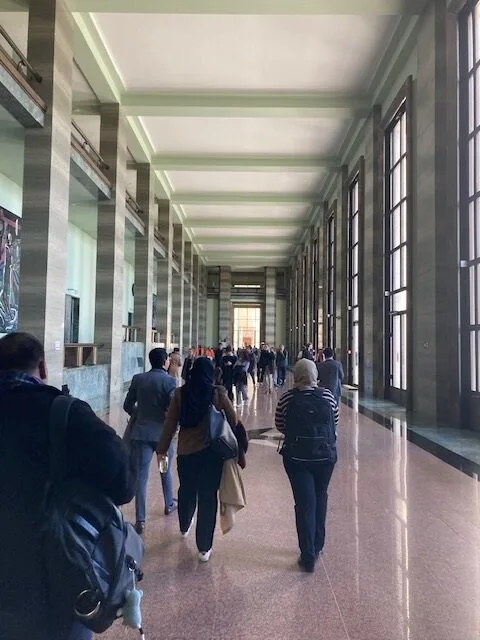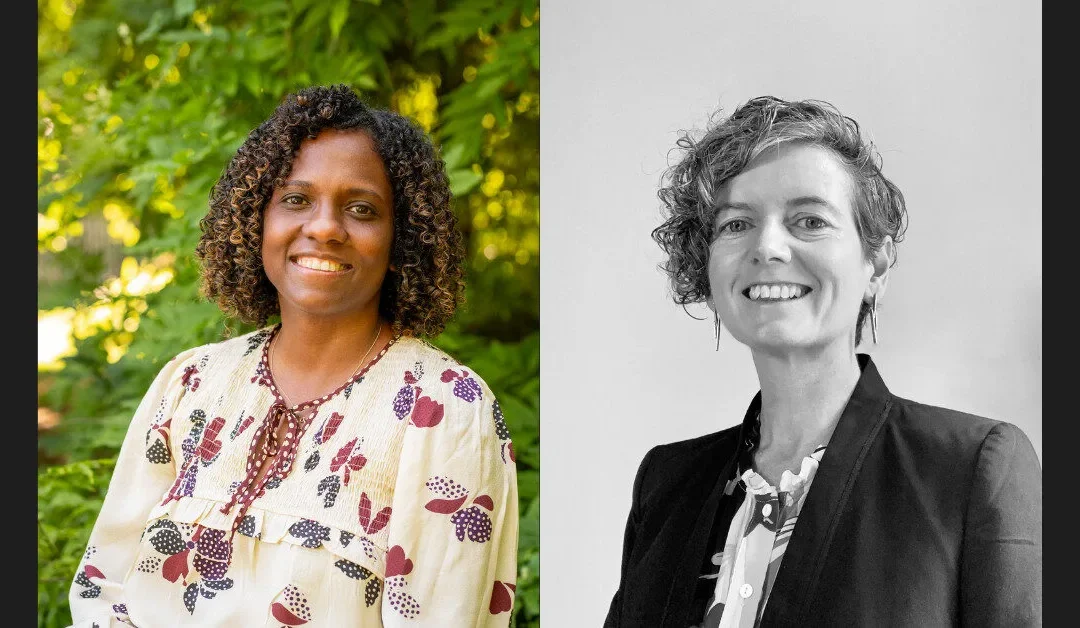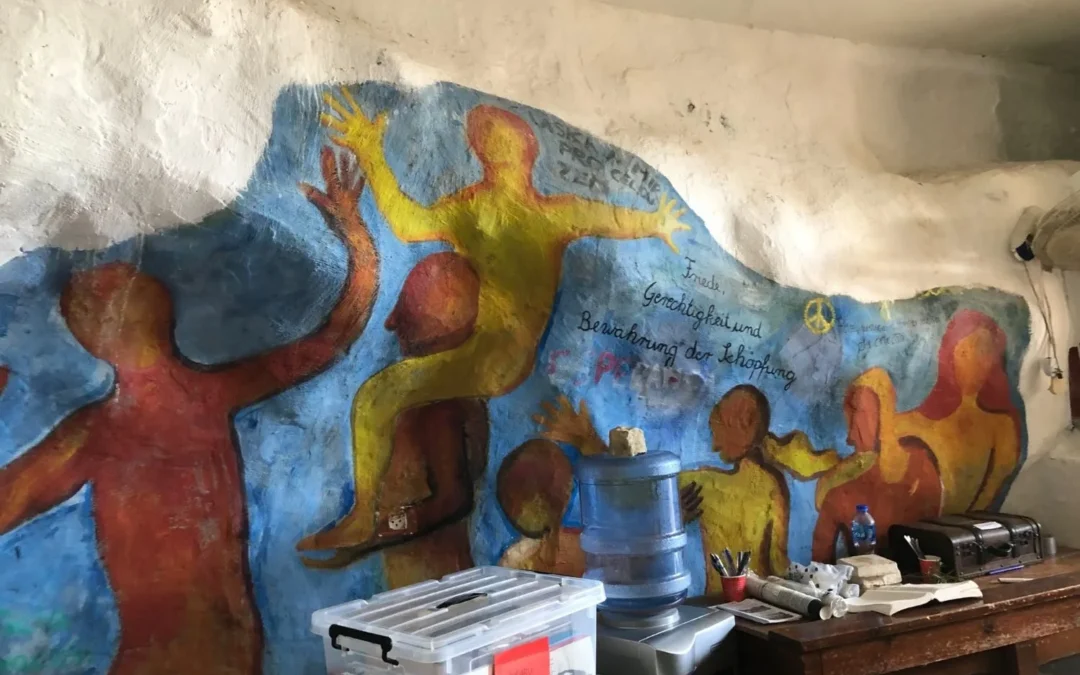On 12 February 2025, QUNO NY staff attended the annual Civil Society Townhall with the President of the General Assembly. Under the theme “Unity in Diversity for the advancement of peace, sustainable development and human dignity for everyone everywhere,” President of the 79th General Assembly, Philémon Yang of Cameroon, engaged with members of civil society on their role in implementing the Pact for the Future. Ailih Weeldreyer, QUNO NY Programme Assistant, was selected amongst civil society applicants to engage with the President of the GA. On behalf of the Friends World Committee for Consultation, Ailih asked the President of the GA the following question: What role can faith-based civil society play in promoting cooperation amongst member states as a step toward strengthening efforts to build peaceful, just, and inclusive societies for sustainable development?
In response, President Yang expressed appreciation for faith-based civil society as trust-builders. He stated, “Through inter-faith dialogue and collaboration, they can help build bridges among nations and cultures, highlighting shared values and principles such as justice, non-violence, human dignity, reconciliation and forgiveness.” President Yang emphasized the importance of faith leaders in peace and reconciliation processes in Rwanda and Colombia as moments when cooperation amongst disparate groups led to more peaceful societies.
Member state cooperation is a high priority of the UN at present. Recent high-level negotiation processes – like the Summit of the Future – and crisis responses – like attempted Gaza ceasefire resolutions in the Security Council – have been obstructed and diminished by states prioritizing national over global interests. Such experiences also serve to weaken trust within the UN system. The strength of the United Nations lies in its role as a forum where people from all over the world and from all aspects of society can discuss and contribute to solving the world’s greatest challenges. But the potential of the institution cannot be realized when individual member states no longer see cooperation as key to their engagement with the world community. An institution is made up of people and can only be as collaborative and effective as the humans which make it run. The people who engage within the United Nations system and with each other every day must revitalize the value of cooperation that forms the very foundation of this system.
In this climate, QUNO’s practice of building trust amongst diplomats on a human level becomes even more relevant. Organizations at the UN which approach their work from a place of faith are uniquely placed to disrupt unintentional (or intentional) dehumanization that can occur through bureaucratization and formal diplomatic politics. The Quaker commitment to recognize the Light – that which is true and good – in all people runs counter to the urge to vilify opponents and leads to engagement rather than isolation. This allows QUNO to create spaces free from the antagonism of high-level politics, and diplomats and members of civil society can build relationships that lead to finding creative solutions. By centering humanity as well as an understanding of something greater than humanity, organizations like QUNO can help members of the UN community see when it is necessary to transcend the politics and processes which sometimes create blockages in progress towards sustainable peace.
At a time of intersecting and accelerating global crises, it is more crucial than ever that the members of the international community rebuild trust and commitment to cooperation. Faith-based organizations have a unique and crucial role in this effort, in partnership with secular human rights organizations and UN agencies, which also hold the tenet of humanity’s inherent value central to their work. QUNO and its partners in civil society – both faith-based and secular – can play an important role in bringing member states together beyond the walls of the UN to be human together, and work as one for peaceful, just, and inclusive societies where all people can flourish.
The full meeting can be viewed here. Ailih’s question begins at 00:21:57.
Image courtesy of the United Nations.

